Life as an open book
Nationally known authors and thought leaders David and Nancy French wield the power of the pen.
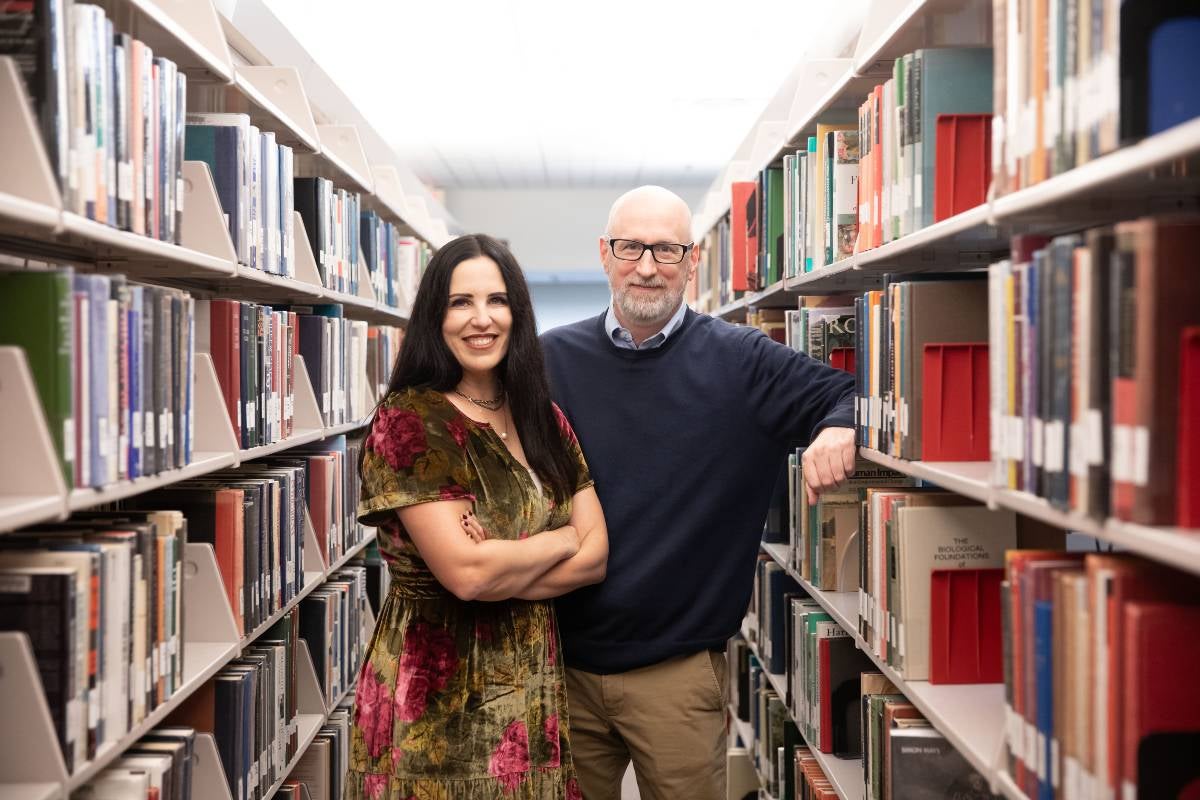
David (BA ’91) and Nancy French (A ’97) are something of an open book.
As a pair of nationally known writers and thought leaders, the Frenches have no problem intertwining their personal experiences and insights drawn from their daily lives into their influential work in litigation, politics and journalism.
Nancy French began her writing career literally by writing about her daily life as a Southern-bred, politically conservative wife and mother living in a politically liberal area of the country. When David French had the realization he needed to walk the talk in regards to his views on the Iraq War, the couple co-wrote a book about how his service in the judge-advocate general officer (JAG) corps affected both their lives, their family and their approach to life.
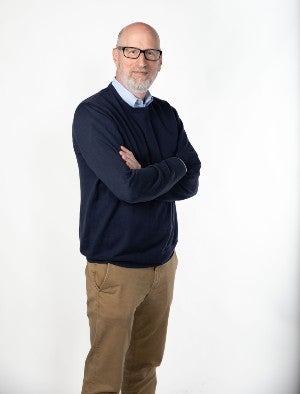
It’s a formula that has served the couple well, as David French now pens a column for the venerable New York Times and Nancy French has hit the bestseller list five times. Most recently, David joined Lipscomb in August as distinguished visiting professor of public policy in Lipscomb University’s College of Leadership & Public Service.
For the Frenches, it all began at Lipscomb University, where David, as a young Harvard-trained attorney reconnected with Nancy in Bison Square when he happened to be on campus for a meeting regarding a lawsuit against Lipscomb.
Both David and Nancy grew up in Church of Christ families in rural towns: Georgetown, Kentucky, for David and Paris, Tennessee, for Nancy. David was on the Lipscomb track from a young age, as both his parents are Lipscomb alumni and probably “half the kids in my youth group” went to Lipscomb, he said.
“I really didn’t think about any other college… I think I met the people who form my core group of friends, even to this day, in the first weekend I was in college.”
It was Lipscomb faculty Craig Bledsoe and Steve Prewitt who steered David toward law school in the first place (he came to Lipscomb wanting to be a pilot), he said.
After four great years at Lipscomb, he arrived at Harvard without much of a life plan and low expectations for himself. After some time, however, he realized “that I had been extremely well-prepared for that challenge,” he said. “I was academically and theologically and spiritually well-prepared.”
While he was looking around, intimidated by Berkley and Princeton graduates at Harvard, he learned years later that his classmates were intimidated by him, thinking that someone who made it to Harvard from a small, Southern liberal arts college, must have something special within him.
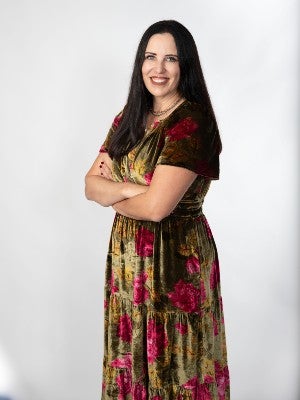
On the other hand, Nancy attended Lipscomb solely at the behest of her parents. While she was still in high school, a Lipscomb admissions recruiter offered to connect her by phone with David after she indicated she was interested in law school (something that wasn’t exactly true). “And he was amazing,” says Nancy with a twinkle in her eye. “We had a good conversation. I really thought he was fascinating and interesting. He was the most interesting person I had ever spoken to—still is!”
So when they ran across each other on campus years later, when she was a junior, they fell right back into conversation, even to the point where Nancy skipped her next class to keep talking to David.
With David’s political science degree and Nancy’s philosophy major, the two had cerebral conversations from the start. “I think our first argument was over whose interpretation of Plato’s allegory of the cave was correct,” laughs David, but the two got to know each other beyond intellectual prowess pretty quickly, as three-and-a-half months later, they were married.
Early in their marriage, Nancy ran their household while David practiced constitutional rights litigation, fighting cases to preserve free speech rights “for people all across the country, whether they were [politically] left or right, Republican or Democrat. You name it, if their free speech rights were violated on campus, we helped them,” he said.
Later he moved to public interest law protecting religious freedoms, challenging college speech codes, discriminatory college funding schemes, censorship of Christian students and much more at universities such as Georgia Tech, Penn State, Harvard, Columbia University and University of Wisconsin. He also had a stint as a professor at Cornell Law School.
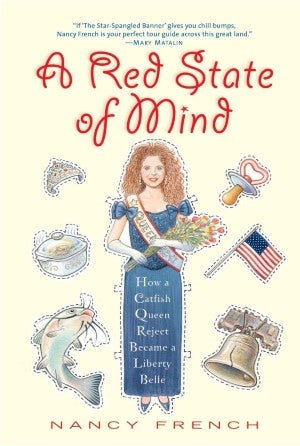
All the while, Nancy was submitting articles for consideration around the country, but found her most success with a one-time submission to a newspaper in their home city at the time, the Philadelphia City Paper. Her “fish out of water” approach to writing about being a Southern-bred political conservative living in a very liberal city at that time drew a severe backlash from the reading public—which the paper’s editor loved.
He signed her to write a regular column called “The Liberty Belle,” said Nancy, and it was that column that helped secure her first book deal for A Red State of Mind: How a Catfish Queen Reject Became a Liberty Belle, published in 2009. The book begins with a description of her quest to become the Catfish Queen at Paris, Tennessee’s, annual World’s Biggest Fish Fry.
While that book was in the works, David began to have a crisis of conscience.
“I had read an article about how the military was having trouble recruiting for the Iraq war, and I just felt convicted that I couldn’t keep supporting the war when I wasn’t willing to deploy to it,” he said.
So late 2005, he walked into a recruiting office in downtown Philadelphia. On Oct. 31, 2007, he was deployed to the Army JAG to serve in Diyala Province, where he was awarded a Bronze Star. Those years turned into the couple’s only co-written book, Home and Away: A Story of Family in a Time of War, published in 2011.
“I thought it would be good to talk about the way that people experience war domestically,” said Nancy. “So that was our idea, to write a book from his perspective and from my perspective. We just thought we had a unique situation because it’s very rare for two writers to go through an experience and be able to explain both sides of it.”
Those two books, as well as being tapped by Anne Romney to help write her memoir (a project that was eventually canceled), set Nancy’s writing career off and running. She was called on to be a ghostwriter for various celebrities (Bristol Palin, Shawn Johnson, Sean Lowe) as well as people with intriguing life stories (Bob Fu, Alice Marie Johnson, Kate Grosmaire).
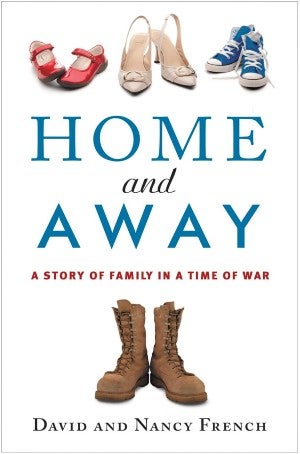
She spent a month living with former vice presidential candidate Sarah Palin and her family in Alaska to work on Not Afraid of Life: My Journey So Far, Bristol Palin’s memoir and Nancy’s first bestseller. Richard Lui, MSNBC/NBC journalist flew her to a movie set where he was working, then to San Francisco to meet his parents and eat in his favorite restaurants and then to New York City to see NBC Studios (where she happened to be when news of one of Trump’s impeachments broke).
For the Right Reasons with Sean Lowe, from The Bachelorette and The Bachelor television shows, was one of her favorites, said Nancy, as was Bob Fu, a Chinese political dissident who taught Communist official leaders by day but led Bible studies by night, as described in God’s Double Agent.
“I was mostly interested in people spreading the Gospel, and I think I was equally surprised that it could be spread in both Communist China and on the set of The Bachelor,” she said. “The context is what makes it interesting, but I think the hope is that there is so much goodness going on in so many places.
“I just want to tell the stories in a compelling way, because it is my feeling that God writes the stories, so I just have to figure out what story God has written and try to manifest that to the degree that is possible through earthly books,” she said.
Any client she works with on a book she tells them, “God is writing your story, we are not. We don’t have to think about brand management. We just have to tell the truth, because it is ultimately more glorifying to God to just be honest about our faults.”
That’s not easy for anyone privately or publicly and involves a lot of trust and transparency, but in the end she ends up with a compelling story. “I think it is a sacred honor to be a part of their lives in that way,” she says.
David has also infused his legal practice and scholarship with a Christian worldview, just as he has done throughout life, he said. “Ever since I was a kid, I brought my faith into everything,” he said. “It’s a very popular phrase today: bring your whole self to work, but I have just kind of always done that. I haven’t compartmentalized my Christianity. It’s just who I am.”
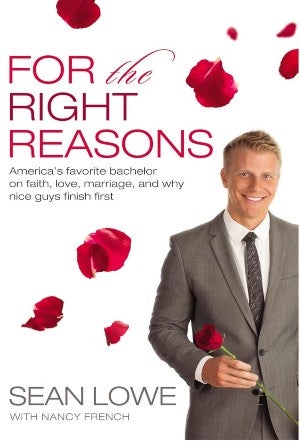
Back in the U.S. and practicing public interest law, around 2014, David found himself frustrated with how the media was covering constitutional issues, so he decided to write about it. Soon he was writing so much that he decided to end his 21-year career practicing law and write full-time. He began working for the National Review. He moved from there to help start The Dispatch, a conservative media organization, with occasional contributions to The Atlantic.
He also wrote another book, Divided We Fall published in 2020. The book urges readers (and leaders) to summon the courage to reconcile our political differences.
The New York Times took note, recognizing his long legal career and legal scholarship focused on protecting the constitutional rights we all share, no matter how we think or speak. In January 2023, the newspaper hired him as an opinion writer and described him as being “factual and [having] intellectual clarity, moral seriousness, and a spirit of generosity toward others and humility toward oneself.”
“Although the path that brought David to Times Opinion is an unusual one,” wrote the Times announcing his hiring, “the qualities he exhibits as a writer are precisely the ones we value most. He is forthright in his views, yet open to counterargument; sincere in his ideological commitments, yet willing to call out those who normally share his beliefs when he believes they’ve wandered astray.”
Nancy said that her faith has manifested in her writing over the past three years through investigative journalism. When made aware of allegations of abuse going on at Kanakuk Kamps, one of America’s largest Christian camps in Branson, Missouri, Nancy saw it as her “Christian duty, to uncover the truth about a situation.”
She found survivors and ex-employees who say unreported abuse at Kanakuk Kamps has spanned decades. Her reports have been published by The Dispatch, Springfield News-Leader and USA Today.
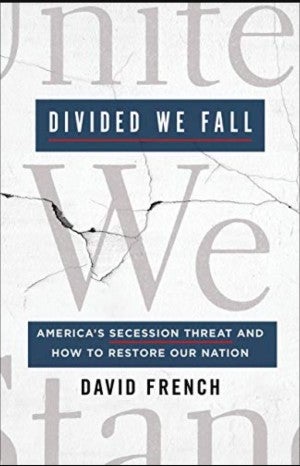
While there has been no movement to close the camp or to hold those responsible accountable, her work has led to several lawsuits, and she described it as “the most important work I’ll ever do… the one thing I did accomplish was that I allowed the victims to feel seen. So I would do it all again.”
Today, Nancy is looking forward to another book release, and this one goes back to the style that originally launched her career: her own memoir. Ghosted: An American Story (Harper Collins, April 2024) is about her early life, her work as a ghostwriter and her personal experience as a politically conservative Christian in the post-Trump political climate.
The couple now live back near their roots in Franklin, Tennessee, and David is now teaching a course called Foundations of Free Speech which tracks the development of the law, culture and philosophy of free speech in the United States as well as how law and culture interact to protect or threaten the right of free expression. Nancy is getting into painting, and David is putting out a Sunday School curriculum on Christian political theology centered on Micah 6:8. Nancy is co-writing a book with theologian Curtis Chang based on the curriculum (The After Party, Harper Collins, April 2024).
“At this point in my career, I really wanted to invest in a place, and I could think of no better place to invest in than my alma mater that gave me so much,” David said. “I remember how much Bledsoe and Prewitt and others really changed my outlook on what is possible. My professors here really sort of changed my horizons and then helped me get there. The ability to invest in students and to maybe change their horizons, is really meaningful.”